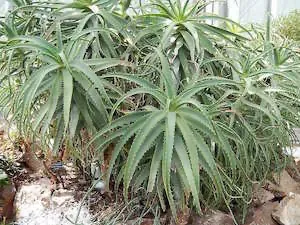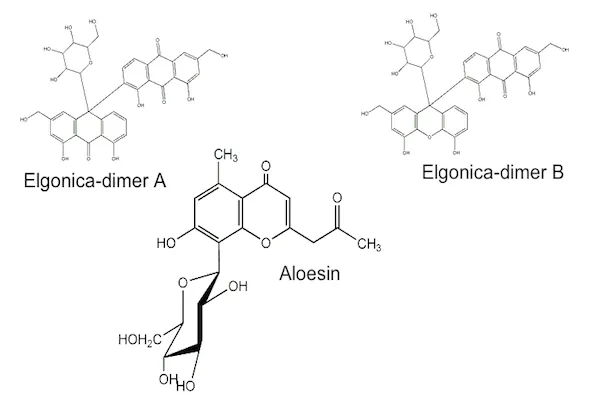Overview of Krantz Aloe
Scientific Name: Aloe arborescens
Order: Asparagales
Family: Xanthorrhoeaceae
Do not confuse with aloe (Aloe vera or Aloe barbadensis), Zimbabwe aloe (Aloe excelsa), or cape aloe (Aloe ferox).
Strong:
insufficient informationGood:
insufficient informationPromising:
insufficient informationConflicting (Unclear):
insufficient informationLimited Evidence:
No Evidence:
insufficient informationNo Clinical Research:
All other conditions.- Side effects have not been studied.
- Avoid or contact a licensed healthcare practitioner, if you have allergies to plants in the order Asparagales (asparagus, onions, etc.), and caution, since there is not enough research on the use of supplements containing krantz aloe.
There is not enough research on the use of supplements containing krantz aloe during pregnancy and breast-feeding, so consult a licensed healthcare practitioner before use or avoid use. [4]
Major:
insufficient informationModerate:
insufficient informationPotential:
insufficient informationKrantz aloe is not a "drug", so the best doses have not been thoroughly established. Make sure to follow the specific product instructions and take as directed on the label, or consult a licensed healthcare practitioner before use.
1. Basta P, Pilaczyńska-Szczęśniak Ł, Woitas-Ślubowska D, Skarpańska-Stejnborn A. Influence of Aloe arborescens Mill. extract on selected parameters of pro-oxidant-antioxidant equilibrium and cytokine synthesis in rowers. Int J Sport Nutr Exerc Metab. 2013 Aug;23(4):388-98. 2. Lissoni P, Rovelli F, Brivio F, Zago R, Colciago M, Messina G, Mora A, Porro G. A randomized study of chemotherapy versus biochemotherapy with chemotherapy plus Aloe arborescens in patients with metastatic cancer. In Vivo. 2009 Jan-Feb;23(1):171-5. 3. Coopoosamy RM, Naidoo KK. A comparative study of three Aloe species used to treat skin diseases in South African rural communities. J Altern Complement Med. 2013 May;19(5):425-8. 4. DerMarderosian A, Beutler JA. The review of natural products: the most complete source of natural product information. 7th ed. St. Louis, MO, USA: Wolters Kluwer Health; 2012. 5. Afendi FM, Okada T, Yamazaki M, Hirai-Morita A, Nakamura Y, Nakamura K, Ikeda S, Takahashi H, Altaf-Ul-Amin M, Darusman LK, Saito K, Kanaya S. KNApSAcK family databases: integrated metabolite-plant species databases for multifaceted plant research. Plant Cell Physiol. 2012 Feb;53(2):e1.

